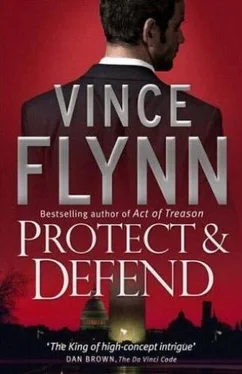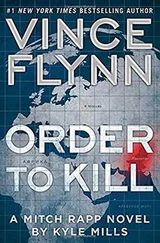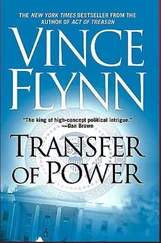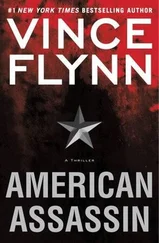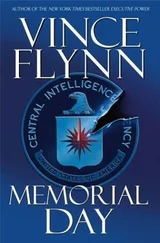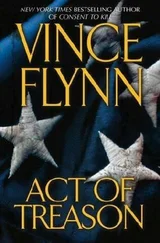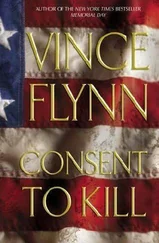As cruel as it sounded, Kennedy knew too much. A drawn-out hostage situation would provide her captors with the opportunity to compromise America’s national security on a scale that was almost unthinkable. Just the thought of having to advise the president in such a manner made England extremely uneasy. He was too positive a person to settle for such a dismal outcome so early in a crisis. There had to be a better way to resolution.
As England’s Suburban passed through the Secret Service checkpoint on West Executive Drive, his secure phone rang. The duty officer at the Pentagon informed him that she had General Gifford on the line. England had met Gifford twice before on recent trips to the region.
“Tom,” England said, “I’m walking in to meet with POTUS right now. Can you give me the brief version of what happened?”
England listened while Gifford passed along the condensed version of an already condensed version that had been given to him from the commanding officer of the quick-reaction force. When Gifford was done, England thanked him and told him to stay by the phone. There was a good chance the president would want to talk to him. England entered the West Wing and went straight to the Situation Room, where he found President Alexander, National Security Advisor Frank Ozark, and Attorney General Pete Webber. The three men were sitting at one end of the massive, shiny wood conference table. They all had their elbows on the table and were staring at a gray, star-shaped speakerphone.
“Mr. President, I’m afraid he’s out of control.”
England unbuttoned his suit coat and sat in the leather chair next to Ozark. He recognized the voice coming out of the speaker phone as that of CIA Deputy Director Chuck O’Brien.
The president sighed and sat back in his chair. “Chuck, considering the situation, I think his rage is understandable.”
“Sir, I’m as big a believer in Rapp’s abilities as anyone. I just think that his judgment is clouded at the moment. He’s too close to this thing.”
England cleared his throat and said, “Chuck, Brad England here. What has he done that has you so worried?”
“Apparently several of the attackers were left behind and taken prisoner. One of the men, who we think may be a policeman, was wounded. After the attack was over, Rapp shot the man in the backside while he was lying on the ground.”
“The policeman?” asked a surprised attorney general.
“Yes. We think local law enforcement may have aided the insurgents. Rapp then decided to conduct a battlefield interrogation with one of the other men. According to early reports he pulled out a knife and stabbed the man in the shoulder while he was subdued.”
The attorney general looked extremely uncomfortable. “Were there witnesses?”
“This all happened in a residential neighborhood,” O’Brien replied. “My guess is there were plenty of people who saw it.”
“Oh God,” the attorney general moaned. “Any reporters on the scene?”
“Not that I know of.”
“Again,” England said, “I apologize if I missed something, but why are we so concerned with how Rapp is handling prisoners? I just got off the phone with the base commander in Mosul. He says the local police didn’t merely look the other way. He says they opened fire on Directory Kennedy’s motorcade.”
“That’s correct,” O’Brien’s voice sounded from the speaker phone.
“So let me get this straight. The director of the CIA has been kidnapped, her personal security detail was all shot execution-style, and we are worried about Mitch Rapp roughing up a few prisoners?”
“I personally could care less about these men, Brad, but mark my words, when the dust has settled, the hill is going to have a lot of questions. They are bound to launch hearings into how this happened and how all of us acted in the aftermath. Right now Rapp is out of control.”
“Correct me if I’m wrong, but isn’t he always out of control? Isn’t that one of the reasons why he gets stuff done while everyone else sits around and talks about it?”
“Mitch Rapp is very good. But there have been plenty of times when he’s gone overboard.”
England looked at the president and then said, “Chuck, I’m going to try and be gentle here. You’ve got a lot of pressure on you right now. One of Director Kennedy’s greatest strengths was that she got results. She also knew how to keep the president insulated from some of the less-than-civil stuff that is sometimes required in your covert world. Do you follow what I’m saying?”
O’Brien did not answer right away. After a moment he said, “Yes, but I still think it would be a good idea for the president to talk to him. Just briefly. My point is we can get answers out of these guys without cutting off appendages.”
“I agree,” the attorney general said forcefully.
President Alexander looked to England, who simply shrugged in a manner that said, what harm could it do?
“All right,” the president said. “Have your people put the call through.”
“Will do, sir.”
There was a click as the line went dead. The president leaned forward and pressed a button on the speaker phone. He then looked up at his old friend England and asked, “Your thoughts?”
“My thoughts,” the secretary of defense leaned back and sighed. “If we don’t get her back soon…and I mean really quick, we are going to have some major problems.”
The president rubbed his forehead. “How the hell did this happen?”
“Don’t even go there, sir. It won’t do us any good at this point. We have to deal with the here and now. Let’s talk to Rapp, find out what he has, and then we can make some contingency plans.
The president nodded. A few seconds later a voice came over the speaker announcing that Rapp was on the line. The president leaned forward and stabbed the speaker button saying, “Mitch, it’s the president here. Are you all right?”
“I’m fine, sir.”
“Do I have this right that you saw Irene being put into the back of a sedan and driven away?”
“That’s correct, sir.”
“Any ideas who is behind this?”
“No, but I have three prisoners, sir. In fact I’m in the process of interrogating them right now. I’m confident two of them will talk. The third looks doubtful.”
The president looked around the room. “Mitch, I’ve got Pete Webber with me, as well as Frank Ozark and Brad England. The rest of the National Security Council should be here shortly. There’s been some concern that you’re too close to this thing.” The president paused and then added, “That you might be out of control.”
A sigh of frustration could be heard over the speaker phone. “Mr. President, the director of the CIA has just been kidnapped. As per our discussion on Air Force One…I think now is the time to pull out all the stops.”
Attorney General Webber had no idea what Rapp was talking about, but it didn’t sound particularly thoughtful. “Mitch, Pete Webber here. We all know you and Irene are close, but you really have to take a few steps back and remember that you took an oath…an oath to protect and defend the constitution of the United States. We all took that oath, and that means none of us are above the law…including you.”
There was a long pause and then in a voice filled with frustration Rapp said, “You have got to be kidding me.”
Rapp’s stark response caused everyone in the room to take a quick look at each other. “Excuse me?” the attorney general asked defensively.
“The director of the CIA was just kidnapped, and her entire security detail was wiped out, and you want to lecture me about an oath and a two-hundred-plus-year-old piece of paper?”
“Our entire country is based on that piece of paper,” Webber responded defensively.
Читать дальше
